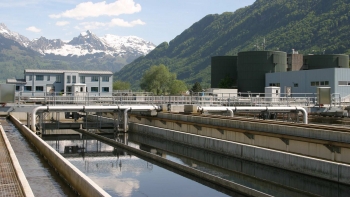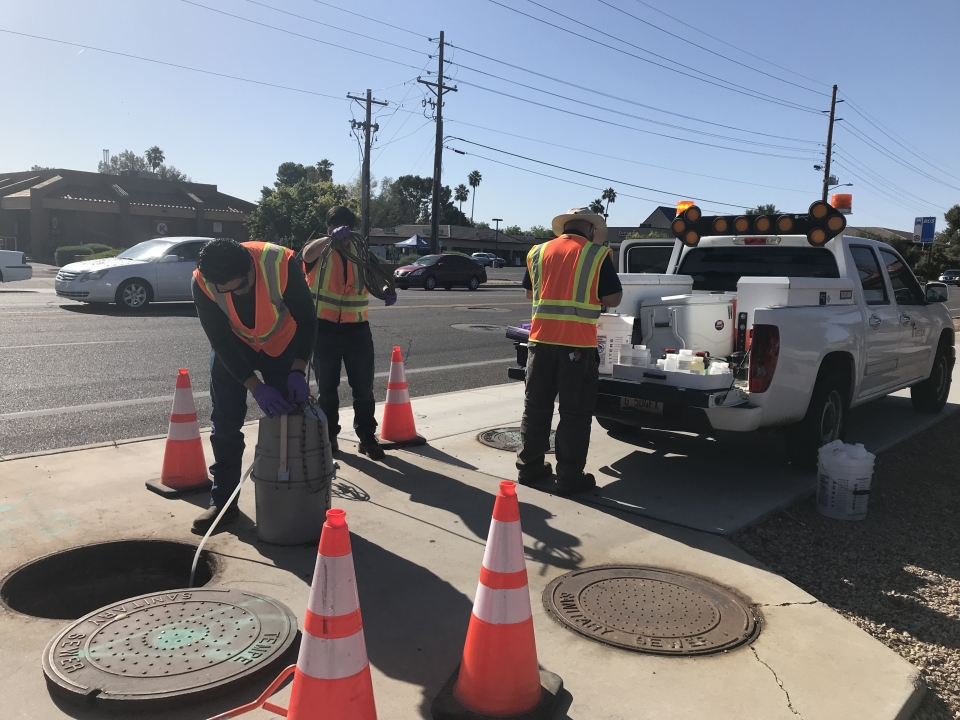Alum reflects on the ASU program that helped advance his career

Wastewater epidemiology isn’t a profession a scriptwriter would likely give to a lead character in an action-adventure film.
In real life, however, experts in the emerging field may someday help protect and save more lives than a typical movie hero.

What’s in wastewater can point the way to better protecting public health, say environmental engineers and scientists who have been advancing the field of wastewater epidemiology. Photo from Pixabay
Download Full Image
The Rockefeller Foundation, a supporter of ambitious efforts to promote “the well-being of humanity throughout the world,” is already convinced of the potential for wastewater research, monitoring and analysis to make our future healthier and safer.
The philanthropic organization has kicked off a major advocacy campaign to help trumpet a recent call from top researchers to bring the growing benefits of wastewater surveillance to all of the planet’s population.
In a recently published commentary in the research journal Nature Medicine, the researchers explain how wastewater surveillance can aid the cause of public health. They describe how it can reveal the presence and track the accumulation and spread of pathogens — microorganisms like bacteria and viruses that can cause disease.
Among the authors are three Arizona State University researchers — Professor Rolf Halden and Assistant Professor Otakuye Conroy-Ben, both members of the faculty at the School of Sustainable Engineering and the Built Environment, a part of the Ira A. Fulton Schools of Engineering at ASU, and Assistant Research Scientist Erin Driver with the Center for Environmental Heath Engineering, directed by Halden, in ASU’s Biodesign Institute. Driver earned a doctoral degree in civil, environmental and sustainable engineering from the Fulton Schools.
Events leading up to the commentary and the advocacy push are reported in a news release from the Rockefeller Foundation emphasizing how wastewater surveillance has advanced as a science and can “provide a powerful early warning system for outbreaks” of diseases by detecting a range of viral and bacterial threats. That information can then enable public health officials to formulate effective responses to help quell those outbreaks.

City of Tempe public service workers are pictured collecting wastewater samples from the municipal sewer system. The city has been sharing samples with Arizona State University researchers in recent years for wastewater surveillance that has helped to track the spread of COVID-19 and other public health threats in local communities. Photo by Erin Driver/ASU
Putting emphasis on preventative health care
In the release, a co-lead author of the Nature Medicine commentary, along with the director of the Rockefeller Foundation’s Pandemic Prevention Institute, says wastewater surveillance has proven its value during the COVID-19 pandemic and needs to be elevated to “a fully effective part of our public health arsenal.”
“If we can implement this more robustly and in more places around the world, we can do much better at protecting public health and avoiding the worst possible impacts of pandemics,” says Halden, who has been recognized for pioneering contributions to detecting the early warning signs of disease outbreaks and other dangers to the health of local communities in wastewater.
“By making wastewater monitoring a priority, we could discover the emergence of disease outbreaks faster than they become evident through the diagnosis of new patients going into hospitals and clinics,” Halden says. “This has been demonstrated recently in the outbreaks of the COVID-19 Omicron variant.”
Beyond early disease detection, Halden and his colleagues see the possibility of broadening our approach to health care by promoting a stronger focus on prevention — in other words, taking steps to make the public aware of what to do to prevent sickness and disease, rather than relying heavily on treating people after they become ill or contract diseases.
“Much of what we do in health care now is to play catch up, trying to heal people who are already in advanced stages of health problems,” Halden says.
He sees hope for reversing that trend as researchers continue to add to the hundreds of already discovered biomarkers — indicators of the condition of the body’s various biological functions.
“This is allowing us to detect and measure more kinds of potential and existing chemical, biological and physical threats to people’s health,” Halden says. “So this presents significant opportunities for the ability of wastewater analysis to reveal problems in the very early stages.”
Accuracy in assessing health challenges
Driver’s work in Halden’s research center includes exploring applications of new tools and methodologies in health care and health science.
“One thing we are looking at doing even more is moving water monitoring beyond only wastewater treatment plants and into other places in communities,” Driver says. “That way we can make visible and track the success of interventions geared to particular health challenges among more specific and localized segments of a city’s population.”
link







